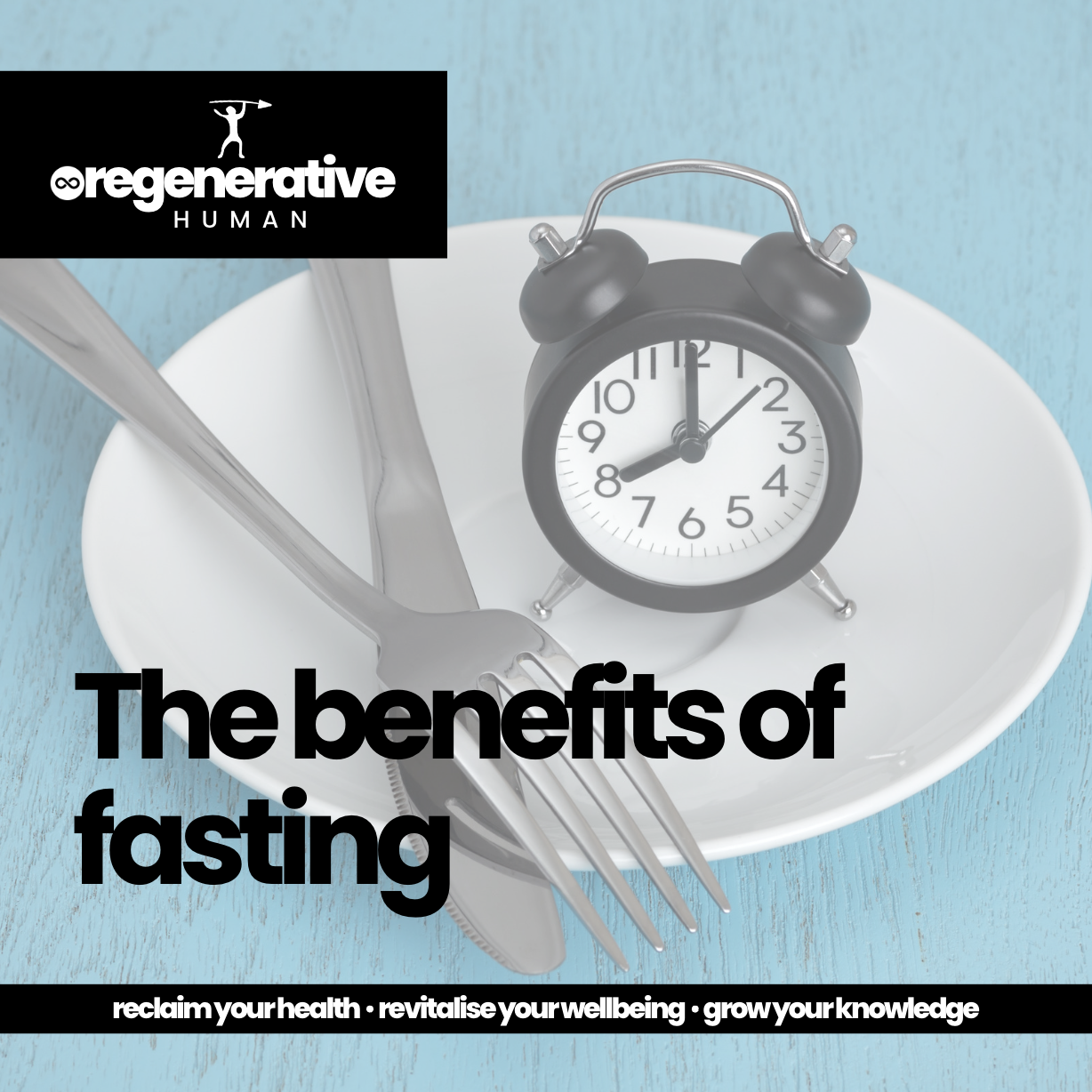Fasting is something that starts to occur very naturally as we begin to feel fuller for longer on a fat adapted diet. Long lasting satiety means that we start to go longer between meals which has immense benefits for the body.
Intermittent fasting
Part of the problem with modern day living with carbohydrate heavy diets is that we are constantly reaching for food and spiking our insulin on a regular basis, this has huge impacts on the body and can lead to chronic diseases such as diabetes and heart disease.
Intermittent fasting isn’t just a useful weight loss tool, it is part of human evolution and a very ancient practice with incredible benefits.
Fasting involves consuming your food in a time restricted manner, an example of this would be 16/8 where you would eat your food in an 8 hour window and then refrain from eating in the other 16. This may sound extreme to some people but given that we are sleeping for 8 of those hours it just means moving your first meal to slightly later in the day and finishing your last meal slightly earlier. It’s really only Kelloggs and other producers of very unhealthy cereals that want you to eat “breakfast”at 8am. Breakfast can be any time of the day, it’s just the point at which you break your fast and preferably not with cereal!
It is also not recommended to eat within 3 hours of sleeping, the body has a lot of important functions to carry out whilst you are asleep and it cannot do this if it is still processing food.
Others may fast and feast, omitting food for 2 days and eating for the other 5, some people do alternate day fasting and others will do an extended fast of 3 – 5 days every few months.
When fasting your blood sugars start to lower and after around 16-17hours deeper ketosis begins. Lowering your insulin levels through intermittent fasting has a range of health benefits both short term and long term. Lowered insulin levels put a brake on the insulin and mTOR signalling pathways, activating autophagy.
Autophagy
Autophagy is a process where the cells start to break down and destroy old, damaged or abnormal proteins and other substances so your cells can operate more efficiently. It is hugely beneficial if recovering from injury or illness and helps speed up repair and recovery. Lowered insulin levels can reduce inflammation, make you more insulin sensitive and/or less insulin resistant which is especially good if you have a high risk of developing diabetes and it can help protect you from the chronic diseases of aging.
Within 24 hours, your cells are increasingly recycling old components. By 48 hours without calories your growth hormone level is up to five times as high as when you started your fast. By 54 hours your insulin has dropped to its lowest level since you started fasting and your body is becoming increasingly insulin sensitive and by 72 hours, your body is breaking down old immune cells and generating new ones. Many people report a surge in energy at this point.
Fasting, though generally considered safe for most people, should be approached with caution if managing diabetes with insulin, on medication that should be taken with food, if you are pregnant or breastfeeding or if you have a history of eating disorders. If in doubt always consult a medical professional before embarking on any new eating routine.





